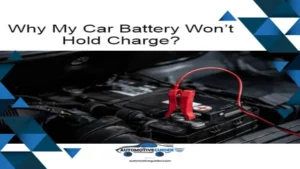Have you ever found yourself on the side of the road with a dead car battery and no idea how to charge it? Or perhaps you’re considering purchasing a car battery charger to have on hand in case of emergencies, but you’re unsure of how many amps it needs to effectively charge your battery. Look no further! In this article, we’ll be answering the question: “How many amps does a car battery charger need?” Understanding the amperage requirements for your car battery charger is crucial for ensuring a safe and efficient charge, so let’s dive in and explore the topic further.
Introduction
If you’re wondering how many amps a car battery charger needs, the answer is not as straightforward as you might think. Different types of batteries require different charging rates, and the amperage needed can range from as little as 1-2 amps to as much as 50 amps or more. In general, the larger the battery and the more drained it is, the higher the amperage needed to charge it effectively.
It’s important to choose a charger that is appropriate for your specific battery. Using a charger with too low of an amperage can result in a slow charge that may not fully recharge the battery, while using a charger with too high of an amperage can damage the battery or even cause it to explode. It’s always best to consult the manual for your battery to determine the correct amperage for charging.
Explaining Amps and their Significance in Car Battery Chargers
Car battery chargers are indispensable devices that rejuvenate drained batteries and keep them in good working condition. But it’s not just about plugging in the charger and letting it do its magic. Understanding amps and their significance is crucial for proper use of a car battery charger.
Amps, short for amperes, are units of electrical current that measure the rate of flow of electricity. In the context of battery chargers, amps refer to the amount of current that the charger provides to the battery. The higher the amperage, the faster the battery charges.
However, charging a battery with too much amperage can cause damage to the battery’s cells, reducing its lifespan. So, it’s essential to balance between the charging time and the amperage to get the best results and ensure the longevity of the battery.

Factors to Consider When Choosing the Right Amps for Your Car Battery Charger
Choosing the right amps for your car battery charger is an important decision that can greatly affect the performance and lifespan of your car battery. As a car owner, you need to consider several factors before settling on a particular amp rating for your battery charger. The type and size of your vehicle’s battery, as well as its charging requirements, are important factors to consider.
The higher the amp rating, the faster your battery will charge, but you also need to ensure that your charger’s rating matches the battery’s rating to avoid damaging it. It’s also important to factor in the charger’s voltage and the charging time required to fully charge your battery. By considering all these factors, you’ll be able to choose the right amps for your car battery charger and ensure that your battery performs optimally for a long time.
Determining the Amps Required for Your Car Battery Charger
When it comes to charging your car battery, one of the most important factors to consider is how many amps your battery charger needs. While the answer to this question will depend on a number of different factors, there are a few basic principles that can help you determine the right amperage for your specific needs. Generally speaking, smaller batteries will require lower amperage chargers, while larger batteries will require higher amperage chargers.
Additionally, if you plan on doing a lot of frequent charging, or if you have a high-powered system that requires a lot of energy, you may want to invest in a more powerful charger with a higher amperage. Whatever your specific needs may be, it’s important to do your research and choose a charger that will not only meet those needs, but also provide you with reliable and efficient performance over the long haul. As always, if you have any questions or concerns along the way, don’t hesitate to consult with a qualified expert who can help guide you towards the right solution for your unique situation.
Checking Your Car Battery’s Ampere-Hour (AH) Rating
When it comes to keeping your car’s battery charged and in good condition, it’s essential to determine the amps required for your car battery charger. Different types of batteries require different amounts of power to charge, so it’s important to check your car battery’s ampere-hour (AH) rating. This rating measures the amount of energy a battery can store and deliver over a certain period.
To calculate the amps required for your battery charger, divide your car battery’s AH rating by the number of hours it takes to fully charge the battery. This will give you the minimum amps required for your charger. Keep in mind that using a charger with a higher amp rating won’t damage your battery, but using one with a lower rating will result in a slow and incomplete charge.
Ensuring that you’re charging your car battery with the correct amps will not only keep it working efficiently but will also extend its lifespan. So, always double-check your car battery’s AH rating before selecting the appropriate charger.
Calculating the Charging Time Using the Amps and AH Metrics
Calculating the charging time of your car battery is crucial to ensure it’s operational when you need it the most. To determine the amp’s requirement for your car battery charger, you need to calculate the charging time using AH metrics. AH stands for ampere-hour, and it measures the amount of energy a battery can store and discharge over time.
For instance, if your car battery has 60 amp hours capacity and the charging output of your battery charger is 10 amps, it will take six hours to charge your battery fully. However, it’s essential to select the right battery charger for your car as the charging time will vary based on the battery’s capacity and the charger’s amperage output. Therefore, it’s essential to consult your car’s manual or a professional mechanic for the best-suited charger for your vehicle.
Understanding the amps and AH metrics is vital to ensure optimal charging times and to prolong your car battery’s lifespan.
Selecting the Right Amps Based on the Type of Car Battery Charger
When it comes to selecting the right amps for your car battery charger, it all depends on the type of charger you have. For example, if you have a trickle charger, you will typically need a lower amperage of around 2 amps. A standard car battery charger, on the other hand, will require anywhere from 4-15 amps depending on the size of the battery.
And for heavy-duty chargers designed for commercial use, you may need from 20-50 amps. It’s important to note that selecting the wrong amps for your battery can lead to overcharging or undercharging, which can ultimately damage your car battery. To avoid this, make sure to consult the manufacturer’s guidelines and specifications when selecting the appropriate amperage for your car battery charger.
Trickle Chargers
Trickle Chargers When selecting the right amps for a car battery charger, it’s important to consider the type of charger you’re using. Trickle chargers are a popular option for maintaining the health of your car battery over a long period of time. These chargers typically have an output of around 2 amps and are designed to slowly trickle a low-level charge into the battery to keep it topped up.
This means that you can leave your car parked for extended periods without having to worry about the battery going flat. When considering a trickle charger, it’s important to choose one with the right amperage for your specific battery. A charger with too much amperage could cause damage to the battery or potentially cause it to explode, while a charger with too little amperage may not be effective in maintaining the battery’s health.
It’s best to consult with a professional or refer to the manufacturer’s recommendations to ensure you choose the appropriate charger for your car battery.
Float Chargers
When it comes to selecting the right amps for your float charger, there are a few important details you need to keep in mind. Different types of batteries will require different amperage levels, so it’s crucial to choose the correct one that matches your specific needs. Typically, a car battery will need a float charger amp rate of around 1 to 5 amps, depending on its size and whether it is a deep cycle or standard battery.
Keep in mind that a battery with a higher amp rating will charge more quickly, which is great if you’re in a hurry, but may cause damage over time. On the other hand, lower amp ratings will take longer to charge but will maintain the battery’s health and longevity. Ultimately, it’s important to consult your battery’s manual before selecting the right amperage level for your float charger to ensure maximum performance and efficiency.
Pulse Chargers
When it comes to selecting the right amps for your car battery charger, there are a few factors to keep in mind, but the type of charger you have is perhaps the most important. Pulse chargers are one type of charger that requires particular attention when it comes to selecting amps. These chargers work by sending pulses of current to the battery to break up and eliminate sulfation, which can prolong the battery’s life.
However, they require a relatively low amperage to work correctly, with most pulse chargers requiring no more than 3 amps. Overcharging a battery with a pulse charger can also damage it, so it’s essential to choose the right setting and amps carefully. Make sure to read the manufacturer’s instructions and recommendations before selecting the amps for your pulse charger, ensuring that you don’t damage your battery or charger while trying to extend the life of your car battery.
Conclusion
In conclusion, asking “how many amps does a car battery charger need?” is like asking how many licks it takes to get to the center of a Tootsie Pop – the answer is: it depends. Factors like the size and type of battery, as well as the charging time and condition, can all affect the required amperage. So, before plugging in your charger, make sure to consult the manufacturer’s recommendations and use your best judgment – because when it comes to charging your car battery, it pays to be both smart and witty.
“
FAQs
What is the typical amperage range for a car battery charger?
The typical amperage range for a car battery charger is around 2 to 10 amps.
Can I use a car battery charger with a higher amperage than my car battery requires?
It is not recommended to use a car battery charger with a higher amperage than your car battery requires as it can cause damage to the battery.
How long does it take to fully charge a car battery with a 3-amp charger?
It typically takes around 8-12 hours to fully charge a car battery with a 3-amp charger, depending on the size of the battery.
Is it safe to leave a car battery charger connected overnight?
It is generally safe to leave a car battery charger connected overnight, but it is important to follow the manufacturer’s instructions for your specific charger.
What is a smart car battery charger and how does it work?
A smart car battery charger uses advanced technology to detect and adjust the charging process based on the battery’s condition, ensuring optimal charging and preventing overcharging or undercharging.
Can a car battery charger be used to jumpstart a car?
No, a car battery charger is not designed to jumpstart a car. You will need a jump starter or jumper cables for that.
How do I know when my car battery is fully charged?
Most car battery chargers have an indicator light that shows when the battery is fully charged. Additionally, you can use a voltmeter to measure the battery’s voltage. A fully charged battery should read around 12.6 volts.






